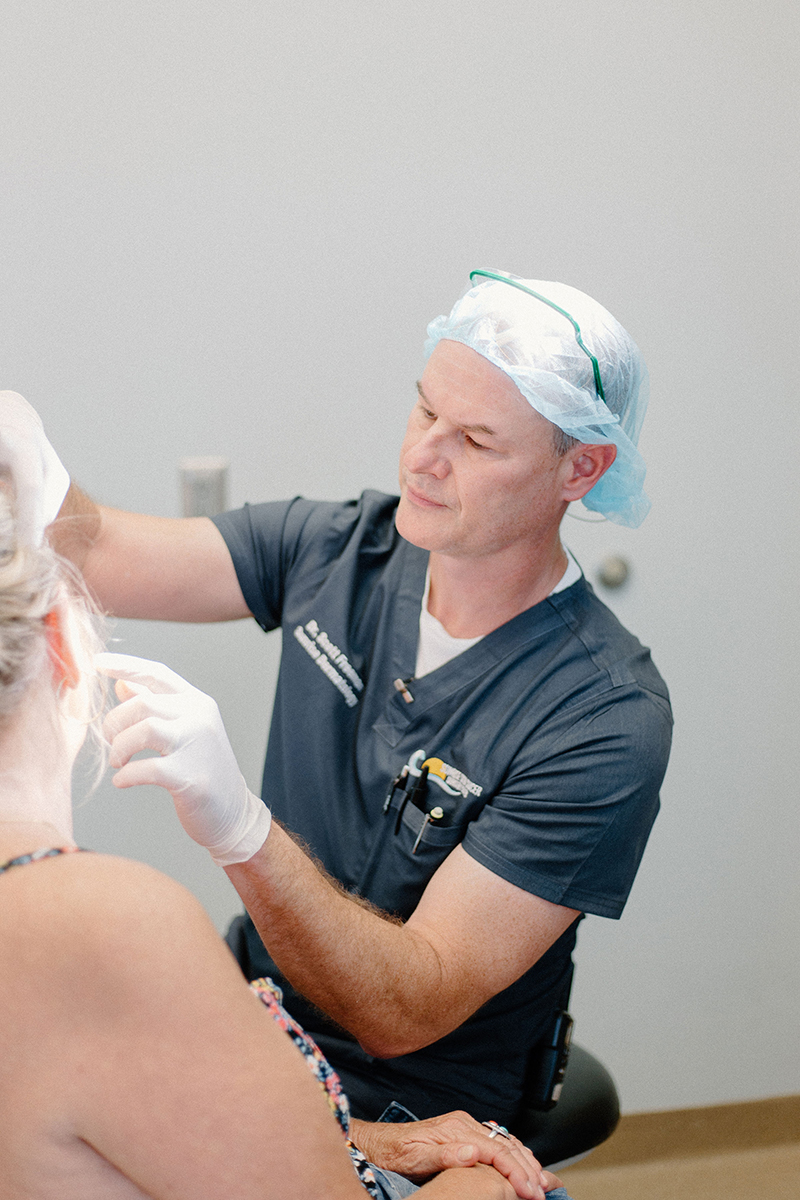What is Skin Cancer?
Living on the Gulf Coast, work, warm beaches and summer activities keep us busy in the sun throughout the year. At Sunrise Dermatology, it is our goal to keep the life of your skin healthy by encouraging regular skin care screenings, and responding with treatments designed for positive results. Annual skin cancer screenings are recommended especially if you have a fair skin type, family history of skin cancer, extensive sun exposure or use the tanning bed. Call our office to schedule your skincare exam with our experienced medical team today.
As skin cancer specialists, we strive to ensure that our patients fully understand their skin cancer and treatment options that best suit this diagnosis. The three main types of skin cancer are Basal Cell Carcinoma, Squamous Cell Carcinoma and Malignant Melanoma.
Basal Cell Carcinoma (BCC), the most common type of skin cancer is often found on the face, neck, and other parts of the body where the skin has experienced chronic sun exposure or tanning bed use. A BCC can appear as an open sore, a red patch or pink, pearly growths. This type of skin cancer is easily treated if caught early.
Squamous Cell Carcinoma (SCC) is the second most common type of skin cancer and occurs most commonly on the face, neck, scalp, or locations exposed to chronic sun. SCC can also occur on the mucosal surfaces of the mouth and genitalia. This type of skin cancer may appear as wart-like growths, open sores or scaly and crusty lesions.
Melanoma is considered one of the most dangerous and aggressive types of skin cancer. These lesions are typically dark brown or black but can also be pink or sometimes even white or blue. Intense sun exposure, tanning bed use, and family history are all risk factors for the development of melanoma. Irregularly shaped, changing, non-healing or bleeding moles should be evaluated by your skin care expert. Melanoma is typically cured by surgical intervention if caught early.

